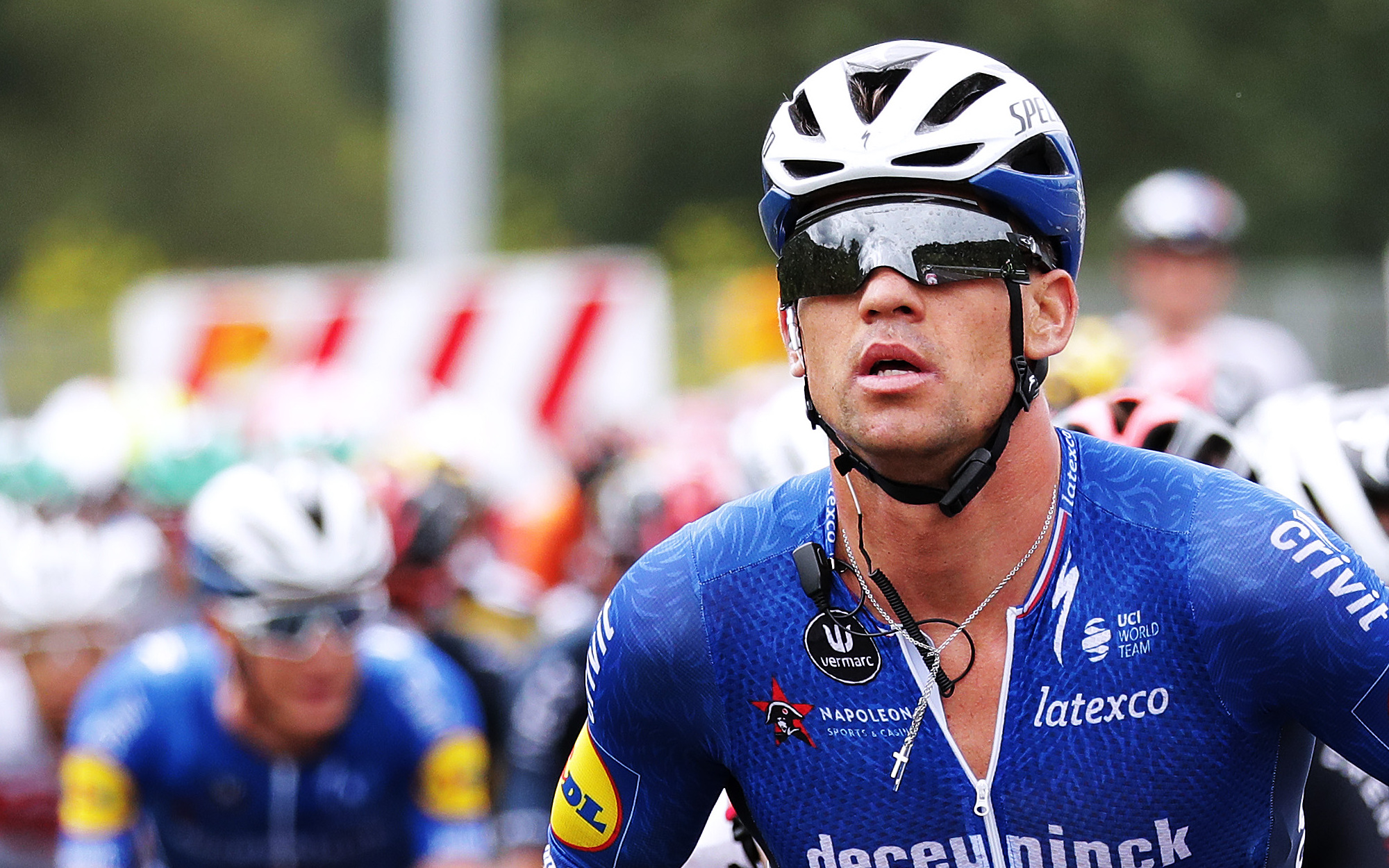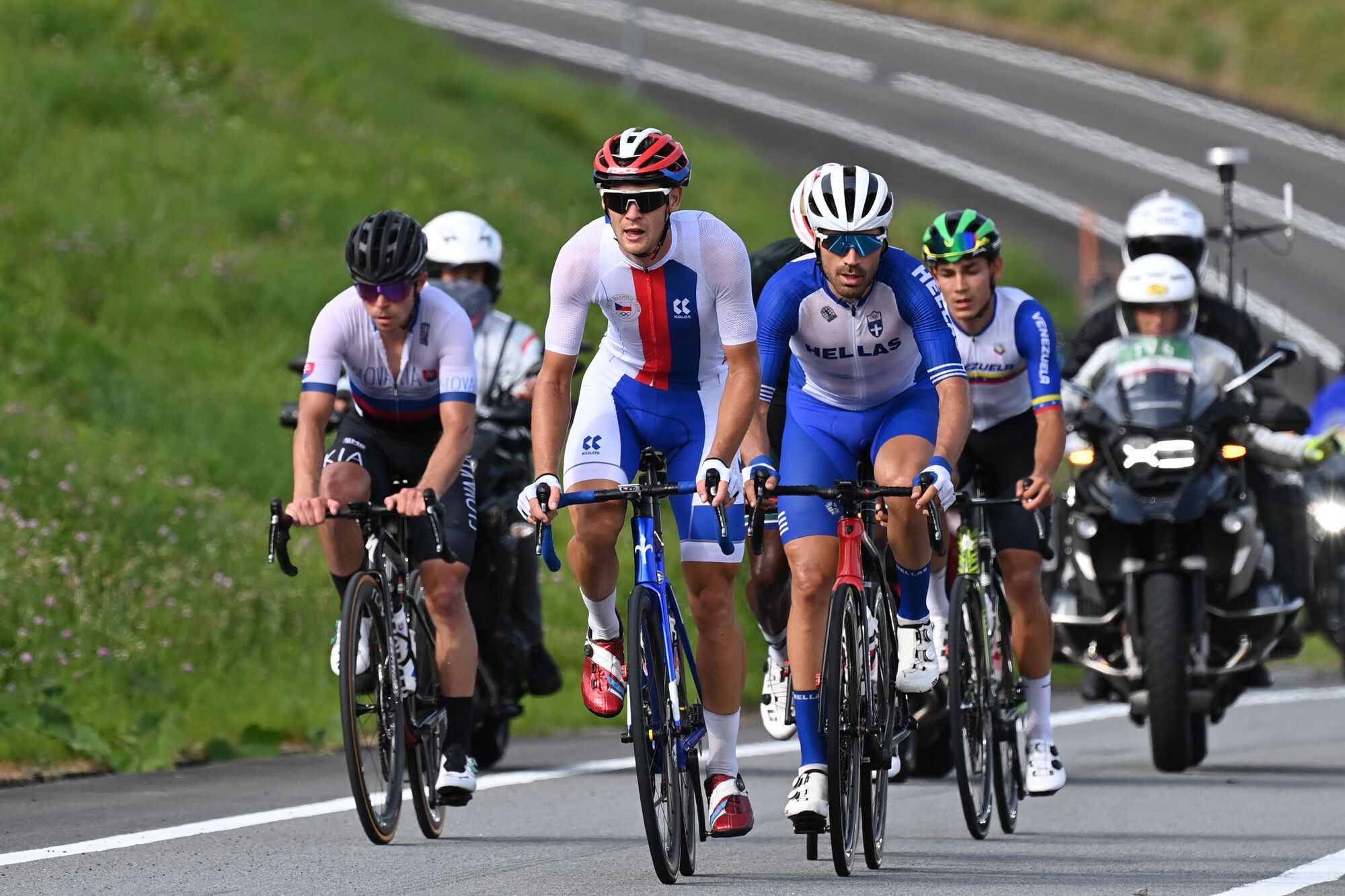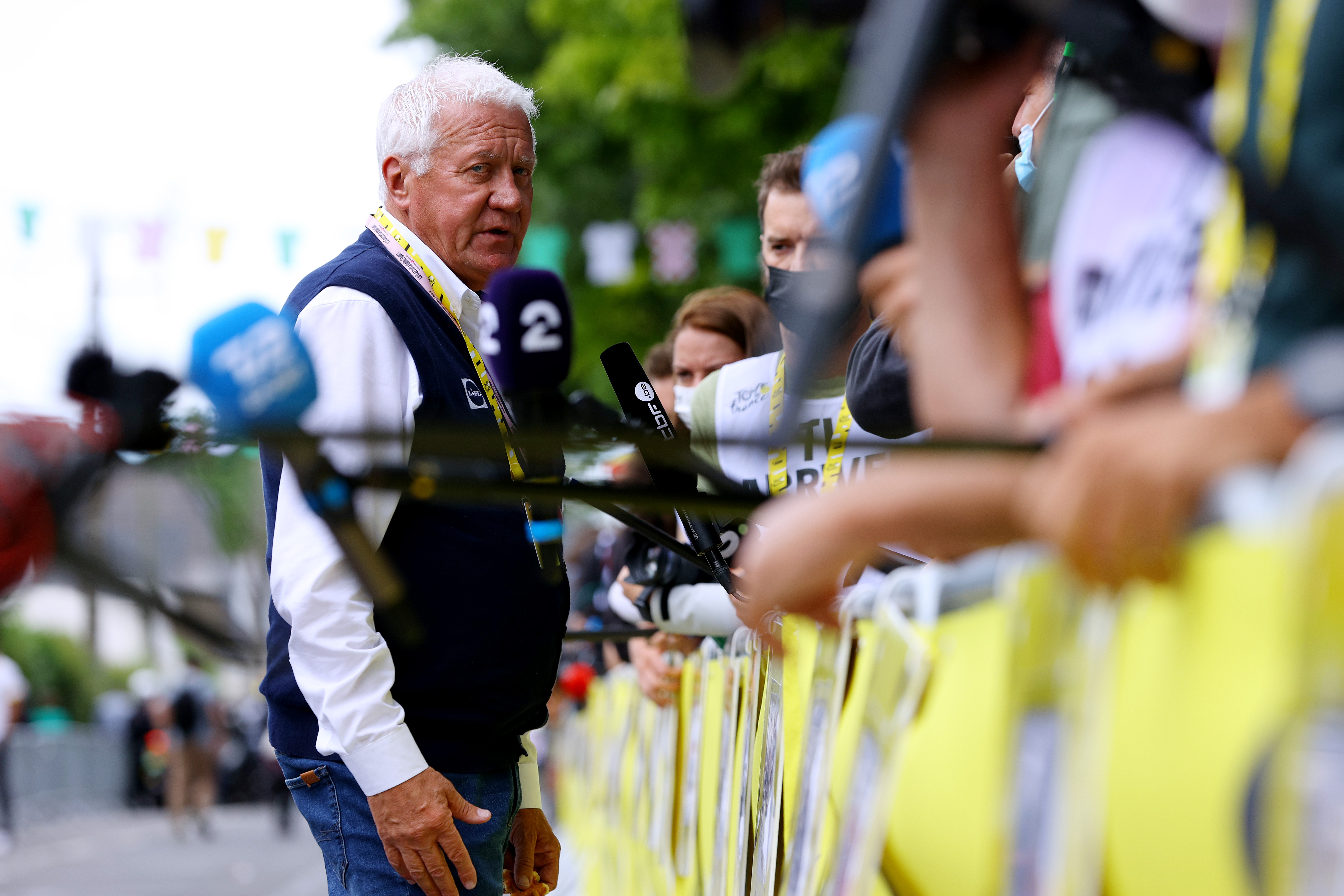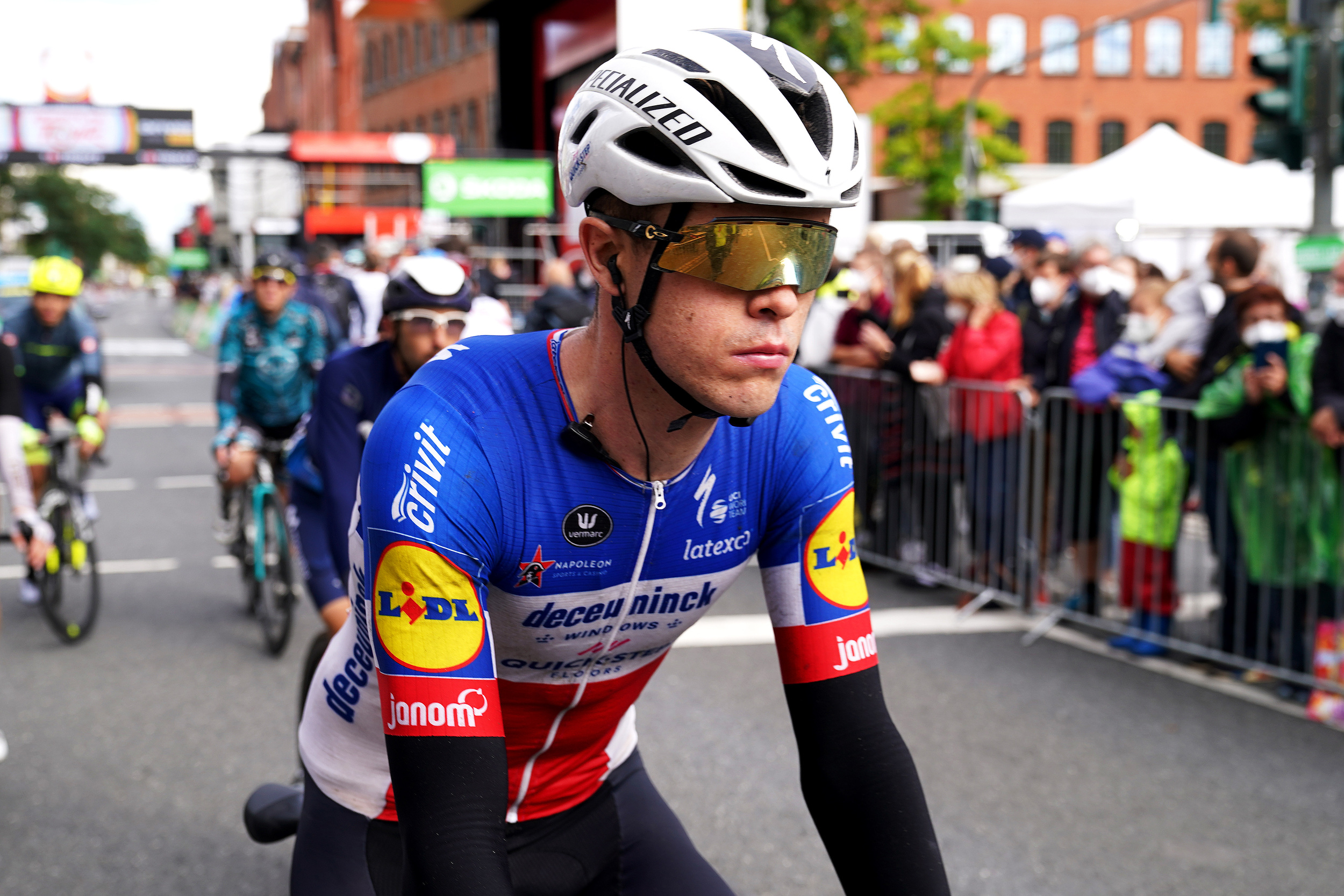‘It was a small disaster. We could write a book about it’: Zdeněk Štybar and his chaotic Olympic Games
The Deceuninck-Quick-Step rider had been looking forward to his second participation in the Olympics, only for everything to go wrong


“We could write a book about what happened. It was a big mess, chaos.”
I hadn’t called Zdeněk Štybar to chat about his Olympic Games experience; the question enquiring about the Toyko road race more than two weeks ago was merely an easy way to begin a conversation that was meant to be about cyclocross.
But such was the disaster of Štybar's short stay in Japan, and in spite of a fortnight having passed, it remains on his mind. The Deceuninck-Quick-Step rider has clearly practiced regaling his friends and family with his ordeal.
After a few weeks at altitude and then a week in Majorca, the Deceuninck-Quick-Step rider flew to Japan on Tuesday, July 20, four days before the men’s road race, eventually won by Ecuador’s Richard Carapaz. It’s here that Štybar takes up the story.
“I arrived a few days later [than the rest of the Czech entourage] and one of our three riders, Michal Schlegel, was positive for Covid,” the 35-year-old explains.
“It meant that all the team had to go into isolation, but because I had not been in contact with him, I didn’t.
“All the team were vaccinated, they gave negative PCR tests, but the Japanese rules said they had to be in isolation.
Get The Leadout Newsletter
The latest race content, interviews, features, reviews and expert buying guides, direct to your inbox!
“I thought I was lucky at first. But then I was all on my own in the hotel and I had to ask for help from the other nations. It was then I realised I wasn’t lucky.
“I was then three hours from all the guys in isolation who were there to help me and Michael [Kurkle, Czech Republic’s second rider]. They tried to help me, they rang me a lot, but they couldn’t do anything.”
Štybar, who had only race eight days since his spring campaign, was thankful that he was able to call upon other nations and friends to assist him, although he asked for the identities of those helping him to be keep anonymous because their help was against protocol.
“Luckily I could help myself a bit,” he adds. “With all the other cyclists around, I got a lot of help from other countries because they knew I was alone in the hotel.
“I got help from everyone, it was really a mix. But under the regulations, everyone was afraid. But they seen that I was on my own and sometimes I didn’t even have to ask [for help].
“It was a weird situation but I realised I have many friends around me who I can count on. That was nice to know. If I get into some trouble, cycling is a small world and after all these years I have some real friends who can help me out.
“But, really, I was actually going from country to country asking for help. It just wasn’t fair on the coach, everyone on the team, because they had this feeling that they couldn’t help me.”
Sat in his room on the Friday evening, trying to find replacement soigneurs and helpers, Štybar then had a “sudden call that I had to pack my stuff immediately and go to the Olympic village.”
Štybar arrived at the athlete’s complex at 8.30pm, ate in the “huge dining room” and then checked-in, knowing that in less than 12 hours he’d be checking back out and driving two-and-a-half hours to the race’s start.
“I didn’t know if I could even go to the race as I needed someone to take me to the start,” he reveals. “I asked to drive a car, but I wasn’t allowed because they couldn’t get insurance for me. It was all these little things on the side. It was a big mess.”
On the morning of the race, the entire Czech team were told that if they returned a negative PCR test, they would be permitted to leave isolation. Tests were carried out at 5am, but they had to wait until 8am. Thankfully, all results were negative. Štybar had support and a team-mate, and an official from his country's Olympic committee drove him to the start.
>>> Tokyo 2020 Olympics cycling medal table: where did each medalling country finish?
“They then had to rush to the start,” Štybar remembers. “It was good but it was a pity for the guys, for the coaches, for the masseur, for the mechanic who had been looking forward to preparing everything, doing their best, and they nearly didn’t get to the start.”
Slightly more relaxed on the startline, and definitely breathing a sigh of relief that he was even there, there was a further twist to come. “Michael got in the breakaway,” he laughs.

Stybar's teammate Michael Kukrle went from his room to the head of the Olympics road race
“My only team-mate, and he was in the break. He went from isolation directly into the break. It was crazy.
“It was a super-hot day and not having anyone else meant I was back and forth to the car to get drinks all of the time. With two, you alternate, but I was getting bidons all the time. “I was getting better in the race and then I was dropped on Mount Fuji and overheated.” Štybar didn’t finish the race, while Kukrle was caught and finished 36th.
He acknowledges that “yeah, it’s a big story. Not the best one, but a chaos” but can he can now see the jovial element to it. Still, though, it hurts him how it played out this way.
“The Olympics are always something very special,” he says. “I was really looking forward to it, training for it, preparing everything to go there in the best possible shape.
“It was, let’s say, a small disaster. It’s a pity: you fly halfway across the world and something like this happens that’s not in your hands. All the experience, all the feeling, how you were looking forward to it all, it then all disappears in just one hour.”

Thank you for reading 20 articles this month* Join now for unlimited access
Enjoy your first month for just £1 / $1 / €1
*Read 5 free articles per month without a subscription

Join now for unlimited access
Try first month for just £1 / $1 / €1
A freelance sports journalist and podcaster, you'll mostly find Chris's byline attached to news scoops, profile interviews and long reads across a variety of different publications. He has been writing regularly for Cycling Weekly since 2013. In 2024 he released a seven-part podcast documentary, Ghost in the Machine, about motor doping in cycling.
Previously a ski, hiking and cycling guide in the Canadian Rockies and Spanish Pyrenees, he almost certainly holds the record for the most number of interviews conducted from snowy mountains. He lives in Valencia, Spain.
-
 'It took everything' - Puck Pieterse outclimbs Demi Vollering to win La Flèche Wallonne
'It took everything' - Puck Pieterse outclimbs Demi Vollering to win La Flèche WallonneDutch 22-year-old shows Classics pedigree with first one-day victory
By Tom Davidson
-
 Tadej Pogačar flies to dominant victory at La Flèche Wallonne
Tadej Pogačar flies to dominant victory at La Flèche WallonneSlovenian takes second win at Belgian classic ahead of Kévin Vauquelin and Tom Pidcock
By Tom Thewlis
-
 Patrick Lefevere: 'I haven’t missed Twitter for a moment'
Patrick Lefevere: 'I haven’t missed Twitter for a moment'Outspoken Quick-Step Alpha Vinyl boss says he is ready for "war" in the classics with his team
By Adam Becket
-
 Rémi Cavagna and Mauri Vansevenant require hospital treatment after accident at Deceuninck - Quick-Step training camp
Rémi Cavagna and Mauri Vansevenant require hospital treatment after accident at Deceuninck - Quick-Step training campThe team have not divulged further details
By Chris Marshall-Bell